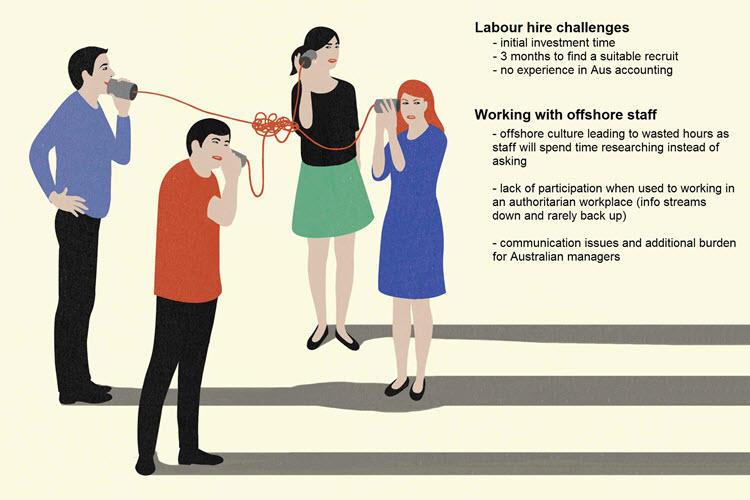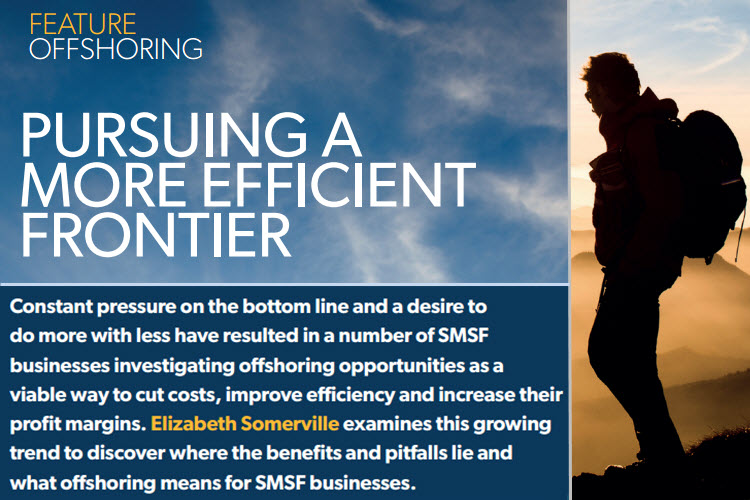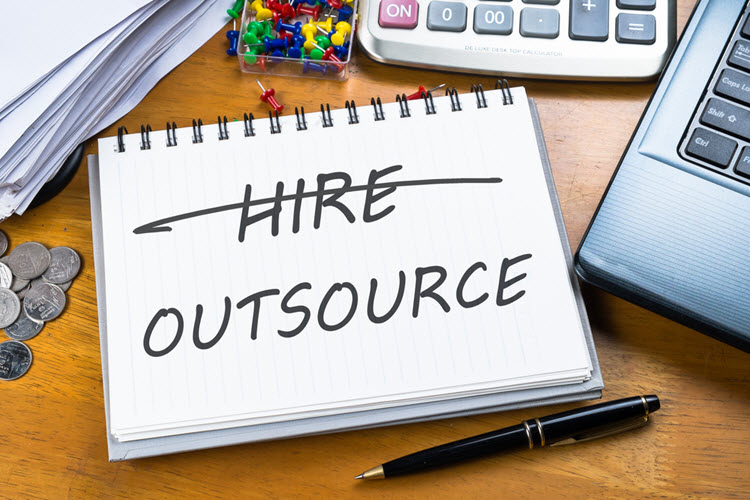It’s fast becoming more competitive in the Philippines, and we’ve heard that as the market matures there are more risks that staff are jumping from one provider to another.
Perhaps a sign that the market is starting to see unsustainable growth is a recent comment from an Australian accountant who mentioned it now takes 3 months for a “Labour hire” firm to find a suitable recruit.
As a reminder, the labour hire companies (also known as offshore placement agents and various other names) are generally responsible for hiring someone for Australian accountants to train.
It is generally appreciated that these new people have absolutely no experience in Australian accounting or understanding of Australian business.
The biggest challenge when offshoring (labour hire)
One labour hire firm reports as follows that the biggest challenge is the initial time investment required to get the offshore strategy off the ground.
Other challenges
Some offshore countries focus on accuracy over productivity. When you are paying for a seat, then you are reinforcing this behavior. You may feel that the offshore labour force works more efficiently than the local Australian equivalent, but the offshore culture results in a lot of time researching or checking before communicating. This ends up as wasted hours, especially when hours are the measure.
Also, some offshore workers generally expect a well structured workflow that is process driven. Locally, they are used to working in an authoritarian workplace where information streams down the organisational structure, but rarely back up. That means that you may have inefficient processes, but you are unlikely to have anyone tell you a better way of working.
A common complaint is that many offshore cultures usually note that to avoid conflict many offshore workers answer with a simple yes or no, more usually ‘yes’ regardless of agreement or comprehension. Whilst open ended questions are usually one way to work through this issue, it requires an additional level of burden for the Australian managers. Sometimes it’s not simply a matter of firing off an email and forgetting, but the requirement to monitor and manage.
The offshore model continues to lose and gain clients. The long term sustainability is still questionable.









